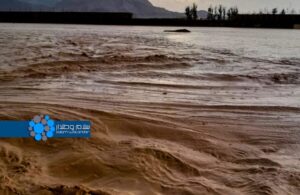ZARANJ (SW) – The crippling drought in Nimroz province has severely affected the farmers.
A number of farmers in Zaranj city, the capital of Nimroz province, told Salam Watandar that they have suffered and are in a difficult situation this year compared to any other years in the past due to the drought and the neglect of local and central officials.
According to them, although a lot of aid has flowed from relief organizations in the country, but due to the lack of proper management in the distribution of these aids, most of them have been deprived of these aids.
Abdul Rauf, one of Nimrozi farmers, says: “90% of our crops have been damaged due to several years of drought. We are not satisfied with the help given to us by foreign institutions because the assistance of the institutions in the center of Zaranj is low and it is high in the districts.”
Mohammad Haider, another farmer of Nimroz, also said: “The situation of farming is not good in Nimroz province due to the lack of water. We don’t have water, there is no farming. In Nimroz province, almost 80 to 90 percent, even some even 100 percent of their crops were destroyed and dried up.”
Gholam Farooq Sharifi, one of the agricultural activists of Nimroz, said that most of the farmers of this province have cultivated their lands in the last few years due to the opening of the Kamal Khan Dam, but due to the lack of proper management, their lands have dried up and they have not obtained anything.
However, Abdul Wahid Barakzai, the General Director of Promotion and Development of Nimroz Agriculture Department, admits that the drought has affected the farmers of this province and they are trying to solve the problems of all farmers in cooperation with institutions and implementation of more effective programs.
According to the officials in the Nimroz Department of Agriculture, there are between 4,000 and 5,000 farmers in the center of this province alone, all of whom are in a bad economic situation and do not get anything from their agricultural lands.
ENDS






